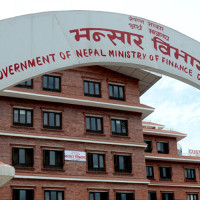- Monday, 23 February 2026
How behavioural economics can help you save on airfare
New York, July 13: It’s not just you: Shopping for airfare is harder than ever. Choosing between basic economy and regular economy fares and navigating add-on fees makes booking more complicated, and that’s no accident. Airlines are harnessing lessons from a still-emerging academic field known as behavioural economics to nudge customers into spending more.
“Behavioural economics was developed by incorporating ideas from psychology into standard economic theories,” says Cait Lamberton, a professor of marketing at the University of Pennsylvania’s Wharton School. “If you see a deal that is available for only a short amount of time, and you pay more than you usually would, standard economics would say you’ve made an irrational decision. Behavioural economics says that no, what your brain is doing is responding to scarcity.”
These seemingly irrational choices are called “biases," many of which can affect how we shop. For example, “loss aversion” makes us hyper-sensitive to losing money and more likely to buy something like trip protection. The “decoy effect” makes us more likely to choose between two suboptimal options when a third, even worse option is presented. For example, airlines may offer a decoy like an expensive premium ticket with fewer amenities, which may make the cheaper premium ticket with more benefits look more appealing.
Airlines are well aware of these tendencies and how they drive our decisions. So to save money on flights, customers need to understand how the airfare shopping experience has been engineered to exploit our biases.
Airlines will use a technique called “social proof” to upsell certain products, such as trip protection, by suggesting that many other travellers are adding it to their itineraries. Yet these marketing tactics don’t offer much real-world value for consumers, according to experts.
Lamberton explains that those messages during the checkout process, like the number of people who have insured their trip today, shouldn’t sway your decision to purchase because they often lack context. “Is that a lot of people or a few people?,” she says.
Another bias that should ring true for anyone trying to buy an airline ticket: “decision fatigue.” That is, we tend to make worse decisions when we have to make several of them in a row.
This airline or that? Early flight or later? Pay for a window seat? Pay now for a checked bag? Upgrade to premium economy? With each decision, our ability to make ideal choices diminishes. (AP)















